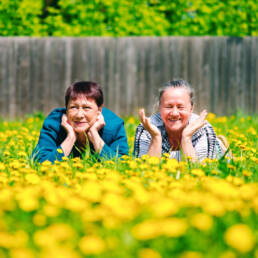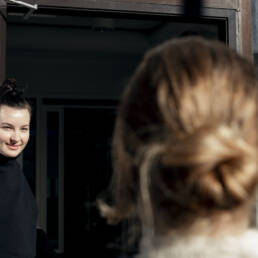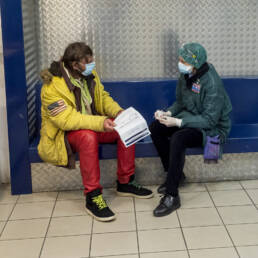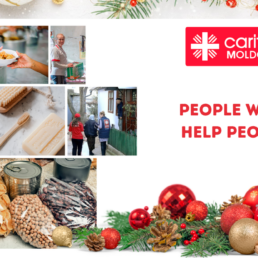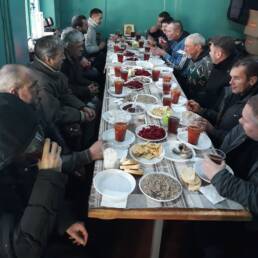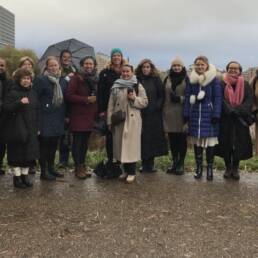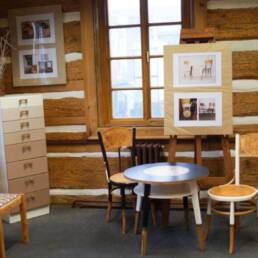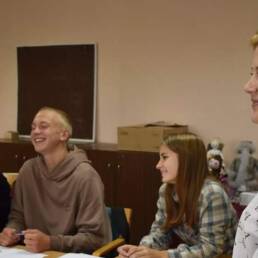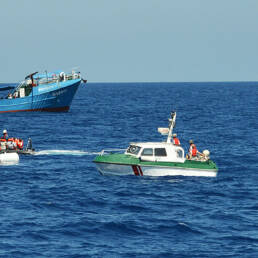Author
Christa Kløve Kranich
National Program Coordinator
Caritas Denmark
When you enter Caritas Denmark’s Center on Wednesdays, you are met with a warm smell of cumin, garlic, ginger and other delicious spices.
In the kitchen you find a group of elderly women from Pakistan talking and cooking and enjoying each other’s company.
They meet and cook as an activity that enables them to get out of their homes, create a social network and prevent loneliness, which is an issue many elders from minority groups are exposed to.
However, cooking for themselves is not the only purpose. When they cook, they also cook for a nearby crisis-center where women and children who have fled domestic violence live.
Being able to help other people, gives the women a feeling of empowerment and of feeling meaningful in their old age.
The women cook solely using surplus waste food that has been donated from a private company. It is fresh and delicious fruit and vegetables, which leads to healthy and vegetarian meals. The fruit and vegetables that have not been used in the meal-preparation are also passed on to the crisis center, so that no food is being wasted.
For delivering the food, students from a near-by high school stop by after their classes to take it from the Caritas Center to the crisis-center. The students enjoy being a part of a hands-on activity and twice a year, the roles are reversed; the students take over the kitchen, prepare a delicious meal and invite the elderly women as well as the women and children from the crisis center and they all share a meal.
Preventing loneliness through cooking and sharing meals
The Food Community first and foremost aims at addressing the problem of loneliness and social isolation for elderly people with minority ethnic background.
When getting older, the risk of loneliness and isolation increases, and this is especially true for those from ethnic minorities. This is due to several factors: a poorer physical and mental health, a lower socio-economic position, and less contact to the public welfare system.
Moreover, the elderly from ethnic minorities are caught in a gap between their original culture and the Danish culture. In the culture of their origin, old age means living with your family who take care of you. However, most have lived in Denmark for many years and their children have integrated into a Danish life and culture, which means work, independent living and a big focus on their own children and daily life. This means that old age becomes very different than expected. Most of the elderly live on their own and their children do not have as much time for them as would have been the case in their country of origin.
At a society level, there is still the perception that ethnic minority groups take care of their elders and therefore do not need much support from society. Due to this, there is a lack of support aimed at helping and creating network for elderly from ethnic backgrounds other than Danish.
Innovation
The Food Community is innovative due to its social approach in working with women as well as the combined focus on social work and the environment.
The Food Community is characterized by three main methods in its approach to the women.
- Bonding over shared culture and language. In the Food Community there is no pushed focus on integration. To reach the women and have them feel comfortable as a group it is important to allow an atmosphere where the group can communicate and bond over their shared cultural background and that they can communicate in whatever language they feel more comfortable.
- Lifting the group by letting them help other people. It has shown to be a big motivation and source of meaning for the women to help another vulnerable group.
- Intergenerational meetings. Having overlap with the students and getting a view into a different life and world has shown to be of great value for both students and the women. It builds bridges through shared perspectives and shared experiences.
Finally, the Food Community is devoted to helping a group of vulnerable people but at the same time supporting our common home by using waste food and including green alternatives into the project from the start.


